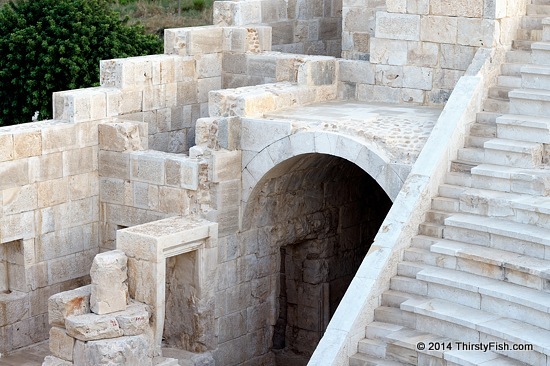The Lycian League Assembly Hall

The recently restored Patara Council Chamber is arguably the world's first democratic parliament building. The chamber was the meeting place of the Lycian League which was composed of 23 known city-states. Patara was the capital of the federation. Nicholas of Myra, better known as Saint Nicholas or Santa Claus was born in Patara ca. 300 AD.
Saint Nicholas had a reputation for secret gift-giving, such as putting coins in the shoes of those who left them out for him. He and his deeds became the model for the folkloric Santa Claus. What is less known is that Saint Nicholas was an ardent opponent of Arianism. Yes, until the First Council of Nicaea in 325 AD, the relationship between God the Father and the Son (not only in his incarnate form as Jesus, but also in his nature before the creation of the world) was a heavily debated issue. That is, "Is the Father and Son one in divine purpose only or also one in being?" Arius and Arians had argued "the supremacy and uniqueness of God the Father, meaning that the Father alone is almighty and infinite, and that therefore the Father's divinity must be greater than the Son's". The council rejected and marginalized nontrinitarianism, and the Doctrine of Trinity has defined mainstream Christianity ever since. To this day, nontrinitarian Christian groups are considered to be heretic by most mainstream Christians and trinitarians.
Maybe, rather than quarrel and discriminate over dogma, early Christians could have taken a hint from Taoism: "What or who ever God or the name of God is, God (Tao) is infinitely great and human beings have to flow with his will, not against it."* And, I don't think it would be incorrect to state that non-discrimination is one of the central messages of Jesus Christ. Or, as Pope Francis recently tweeted: "A Christian is merciful by nature; this is heart of the Gospel".
* Tao Te Ching, Chapter 25; Translation 1, Translation 2, Translation 3, Translation 4.
Posted
- Fri 2014-10-17
Captured
- 2014-09-02
- Patara, Turkey


